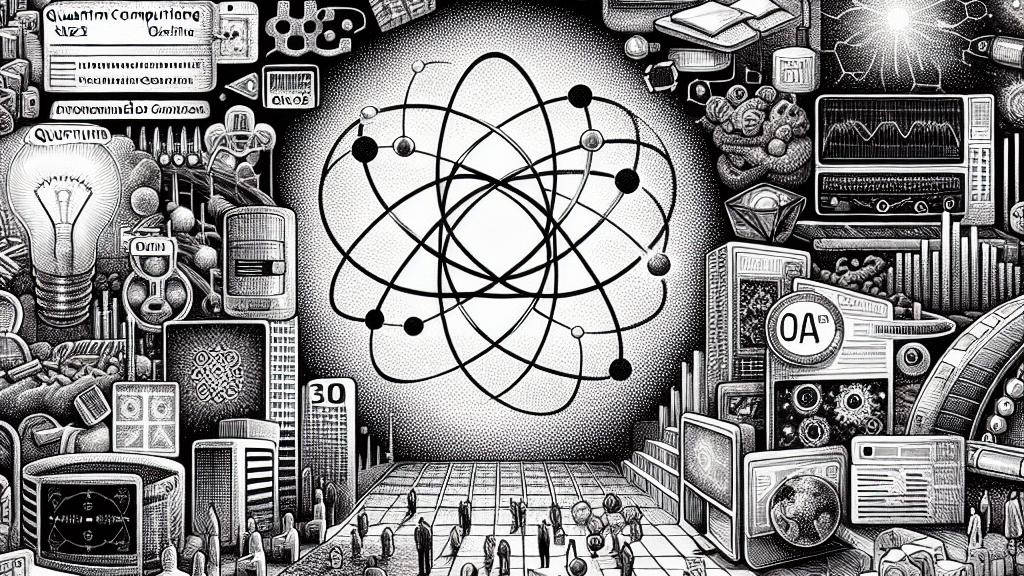Understanding Quantum Computing: What to Expect in 2025
Overview
- 2025 will be celebrated as the International Year of Quantum Science and Technology, illuminating groundbreaking innovations.
- Quantum computers utilize the bizarre principles of quantum mechanics for unparalleled computational power.
- These advancements promise to revolutionize diverse fields, from groundbreaking medical research to enhanced cybersecurity measures.

The Exciting Future of Quantum Computing in 2025
Imagine standing at the precipice of a technological revolution in 2025, a year designated as the International Year of Quantum Science and Technology. This isn’t merely a title; it signals a seismic shift in how we approach computing! Quantum computers have the extraordinary ability to perform complex calculations at lightning speeds, far surpassing anything a traditional supercomputer could manage. For instance, consider drug discovery: a process that typically unfolds over several years could potentially be condensed into a matter of hours or minutes, enabling scientists to develop treatments for diseases at an unprecedented rate! Experts like Muhammad Usman are acutely aware that boosting the efficiency and reliability of quantum bits, or qubits, is essential for unlocking this monumental potential. As advancements continue to emerge, we can expect a tidal wave of innovative solutions that could redefine industries, such as healthcare, financial services, and climate science.
How Quantum Chips Function
Let's unpack how these remarkable quantum chips work. Unlike conventional computers that rely solely on binary bits—0s and 1s—quantum computers operate on qubits, which brilliantly exploit the concept of 'superposition.' This unique property allows qubits to occupy multiple states at once, dramatically boosting their data processing capabilities. To illustrate this, look at Google's astounding achievements with their quantum chip, 'Willow.' They successfully transformed fairly hopelessly long calculations, which would take supercomputers an unfathomable 10^25 years, into a quick 5-minute task. It’s akin to witnessing a hare outperform a tortoise in an epic race! This speed not only opens doors to innovations across multiple fields, such as artificial intelligence and environmental modeling, but also redefines our understanding of computing limits. The ramifications are truly staggering!
The Journey Toward Practical Quantum Computing
However, the journey toward practical quantum computing is replete with challenges that must be addressed. Stability and reliability in qubits remain significant hurdles; even minor errors—known as 'low fidelity'—can adversely affect quantum computations. Researchers worldwide are diligently working to improve the quality of these critical quantum bits. Major players like Microsoft and Google are in fierce competition, striving to create systems capable of integrating numerous logical qubits by 2025. Usman strongly believes that the leap from a handful of reliable qubits to a network of hundreds is not just necessary but crucial for feasible quantum computing. Just envision the potential—fully functional quantum computers could revolutionize sectors including healthcare, financial analytics, cybersecurity, and even climate change solutions! The excitement in the scientific community is palpable as we eagerly await these game-changing developments.

Loading...